10 year cardiovascular risk assessment calculator
Estimate 10-year risk for atherosclerotic cardiovascular disease. Any Deadline - Any Subject.

3 Risk Assessment And Stratification
For example in a white man without CHD risk factors a CAC score of 50 reassuringly reduces the posttest risk estimate example 7 whereas in a 55-year-old Hispanic woman with many CHD risk factors the same CAC score would predict an elevation in posttest risk example 10.

. Get all these features for 6577 FREE. This calculator is intended for men with no prior history of cardiovascular disease see next bullet. Personal 0808 271 8573 Members.
This peer-reviewed online calculator uses the Pooled Cohort Equations to estimate the 10-year primary risk of ASCVD atherosclerotic cardiovascular disease among patients without pre-existing cardiovascular disease who are between 40 and 79 years of age. However conducting a more detailed 10-year risk assessment every 4-6 years is reasonable in adults ages 40-79 who are free of cardiovascular disease. The ASCVD Risk Assessment Calculator gives both the 10-year and lifetime risk of developing atherosclerotic heart disease which includes heart attack and stroke.
The risk score can help you make lifestyle changes or take medicines to prevent heart disease. A cardiac risk calculator cardiovascular risk assessment evaluates your unique information to gauge your future risk. Cardiovascular Disease Risk Calculator.
Ten Year Risk Assessment. In such patients a blood pressure target of. Less than 5 low risk 5 to less than 75 borderline risk 75 to less than 20 intermediate risk Greater than or equal to 20 high risk.
Cardiovascular risk assessment in adults 10-year ACCAHA 2013 conventional and SI units. TAKE THE ASSESSMENT TEST. Calculate your 10-year risk of heart disease or stroke using the ASCVD algorithm published in 2013 ACCAHA Guideline on the Assessment of Cardiovascular Risk.
Physical cognitive mental status behavioural mobility medication changes social network or environment. We cover any subject you have. Since then QRISK2 has been updated annually and.
1 Patients are considered to be at elevated risk if the Pooled Cohort Equations predicted risk is. T in top 10 Heart Disease Blogs of 2012 Cardiac perspectives from a heart surgeon Professionals. Annually evaluate fall risk in patients 65 years using one of two evaluation tools see text below and Figure 1.
In certain populations the PCE have reasonable calibration. You may be at risk for cardiovascular disease. In the placebo group the 10-year risk of hard ASCVD was 87 and the risk of the expanded ASCVD endpoint that included coronary.
Assessment of Cardiovascular Risk. This calculator helps health care providers to estimate 10-year risk for atherosclerotic cardiovascular disease ASCVD defined as coronary death or nonfatal myocardial infarction or fatal or nonfatal stroke based on the Pooled Cohort Equations. Receive your papers on time.
It helps predict the risk over 10 years of heart attack stroke or death from cardiovascular disease. 1091 The best writer. Calculating the 10-year risk for cardiovascular disease using traditional risk factors is recommended every 4-6 years in patients 20-79 years old who are free from cardiovascular disease.
The first QRISK model to estimate 10 year risk of cardiovascular disease was published in 20071 It was followed by an updated model QRISK2 in 2008 which included ethnic origin and additional risk factors type 2 diabetes rheumatoid arthritis atrial fibrillation and chronic renal disease. Essay Help for Your Convenience. 1 Patients are considered to be at elevated risk if the Pooled Cohort Equations predicted risk is.
Systematic Evidence Review from the Risk Assessment Work Group. If you have your cholesterol levels and blood sugar results ready you may also take the Framingham 10-Year Heart Disease Risk Test to calculate your risk of heart disease. A history of cardiovascular disease means a person has or had in the past blocked arteries a heart attack a stroke or heart failure.
More recently JAK2V617F and cardiovascular CV risk factors were identified as additional modifiers leading to the development of a 3-tiered International Prognostic Score of Thrombosis for ET IPSET-thrombosis. These cardiovascular risk assessments use personal health information to calculate a 10-year and lifelong risk of heart disease. To discuss your healthcare needs call us on.
The risk is categorized as follows. The 10-year heart attack and stroke risk assessment calculator link opens in new window published by the American Heart Association and American College of Cardiology accurately predicts risk and does a good job at ranking people most likely to have future cardiovascular events according to a new analysis link opens in new window published in the. In such patients a blood pressure target of.
This calculator assumes that you have not had a prior heart attack or stroke. Evaluating Patients for Fall Risk. These have been compiled in a report and published in a sup.
Patients with low absolute cardiovascular risk 10-year ASCVD risk. Reassess for fall risk if there is a significant change in the patients health. Low intermediate and high.
51 Current evidence supports the use of ACE inhibitors and to a lower level of evidence beta-blocker therapy to impede maladaptive LV. If you have generally it is recommended that you discuss with your doctor about starting aspirin and a statin. To continue reading this article you must log in with your personal hospital or group practice subscription.
Calculating the 10-year risk for cardiovascular disease using traditional risk factors is recommended every 4-6 years in patients 20-79 years old who are free from cardiovascular disease. For men and women between the ages of 40 and 69 and those 70 years of age the risk is 22 and 25 respectively. Atherosclerotic Cardiovascular Disease ASCVD Risk Calculator.
Published Nov 2013 Download PDF 2 MB. Cardiovascular risk assessment in adults 10-year ACCAHA 2013 conventional and SI units Close. This peer-reviewed online calculator uses the Pooled Cohort Equations to estimate the 10-year primary risk of ASCVD atherosclerotic cardiovascular disease among patients without pre-existing cardiovascular disease who are between 40 and 79 years of age.
All experts involved in the development of these guidelines have submitted declarations of interest. However conducting a more detailed 10-year risk assessment every 4-6 years is reasonable in adults ages 40-79 who are free of cardiovascular disease. The 5-year risk of developing HF after acute MI is 7 and 12 for men and women respectively.
Set the deadline and keep calm. Patients with low absolute cardiovascular risk 10-year ASCVD risk. Even when pretest 10-year CHD risk is held constant such as at 10.
In this regard advanced age and thrombosis history were used to assess this risk. No single risk calculator is appropriate for all patients.

Cardiovascular Risk Calculation Youtube

Pin By Evelyne Seebauer On Health Information How To Squeeze Lemons Turmeric Spice Water Recipes
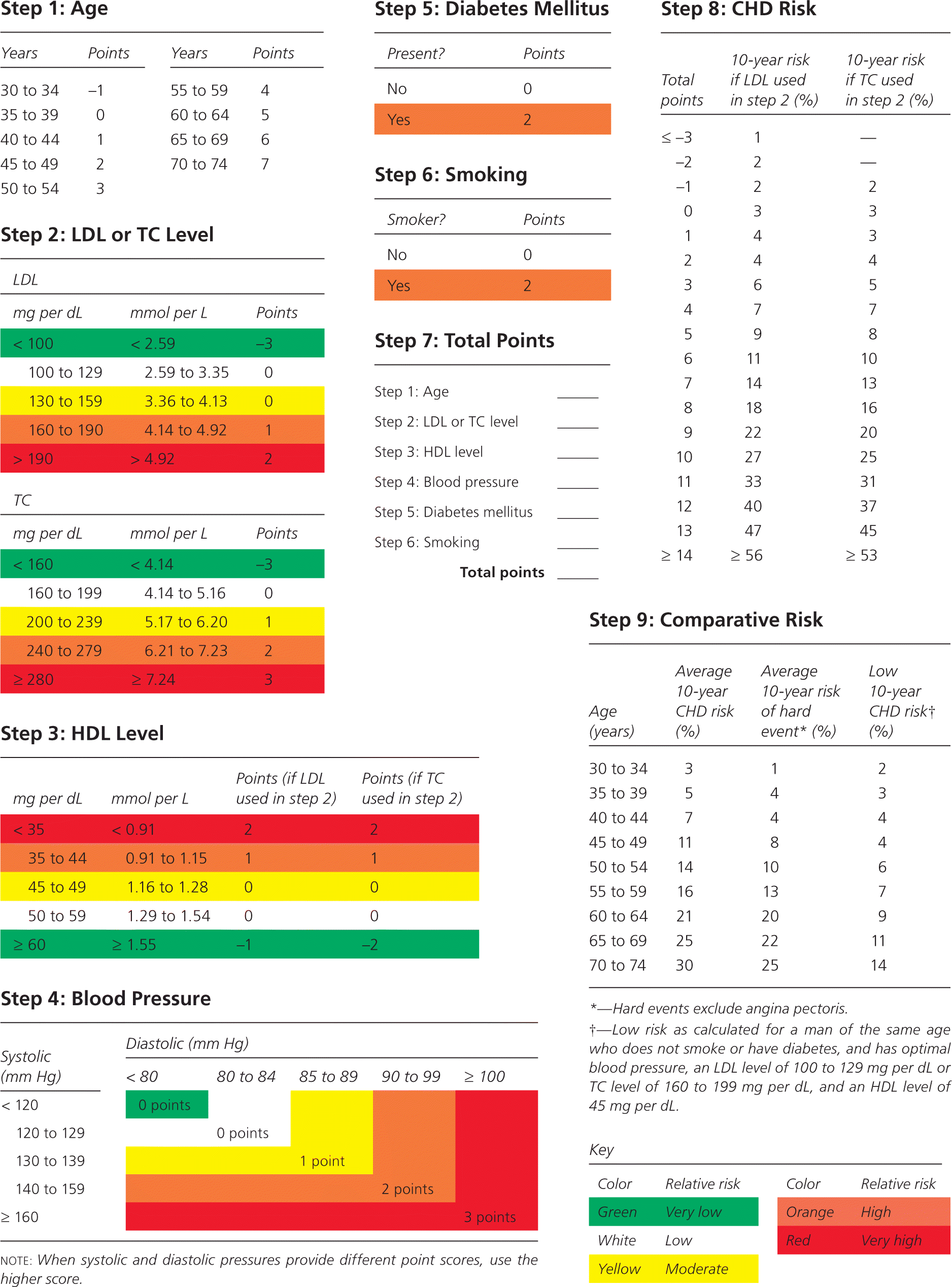
Global Risk Of Coronary Heart Disease Assessment And Application
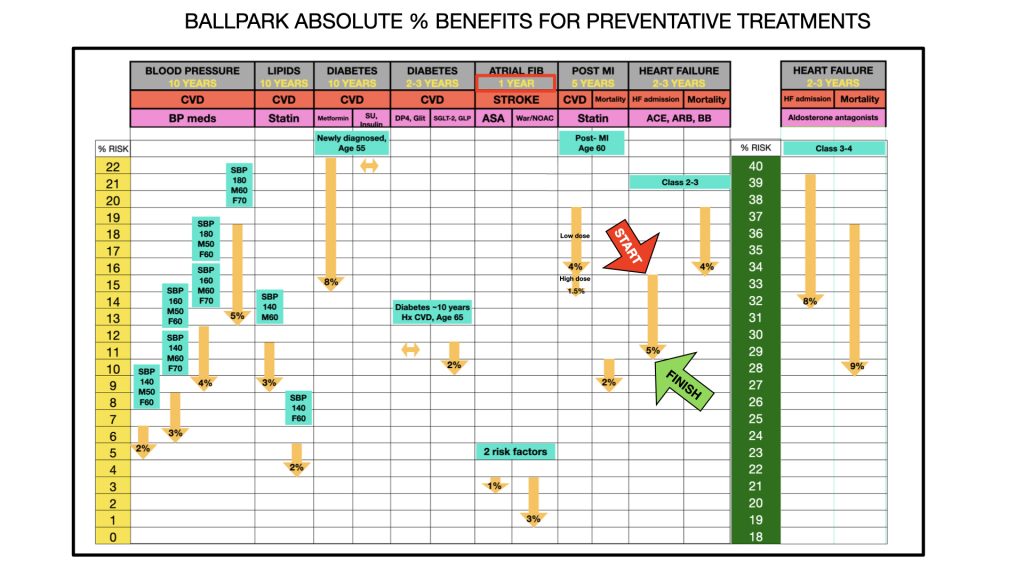
Therapeutics Education Collaboration Tools
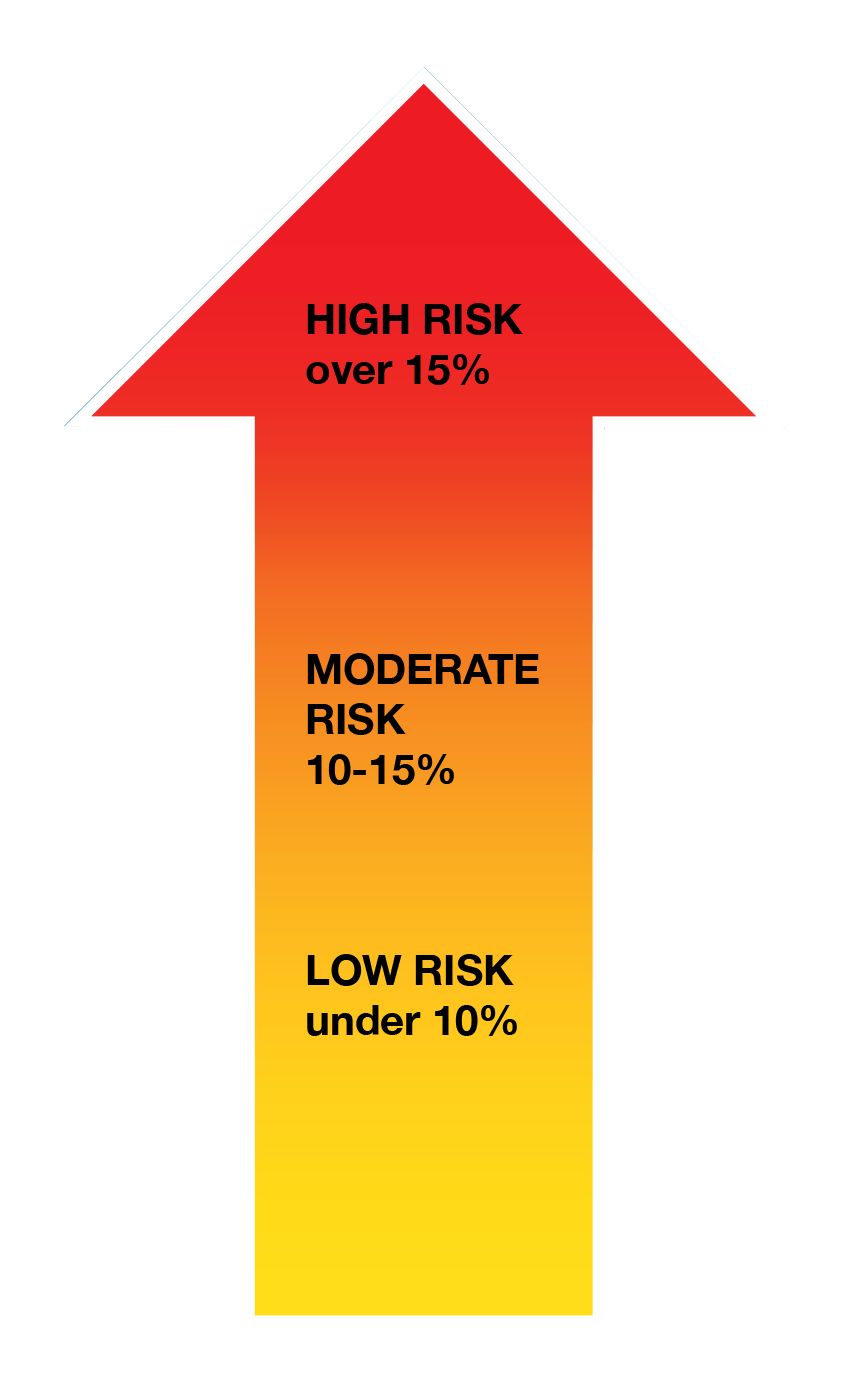
Cvd Check Your Risk Score
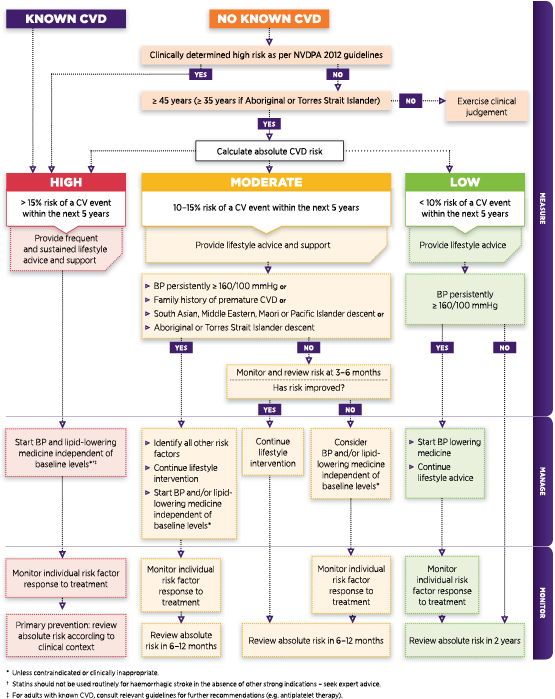
Absolute Cardiovascular Risk In Clinical Practice Nps Medicinewise

Ascvd Risk Estimator

Score Chart 10 Year Risk Of Fatal Cardiovascular Disease Cvd In Download Scientific Diagram

Epirxisk

Ascvd Risk Estimator
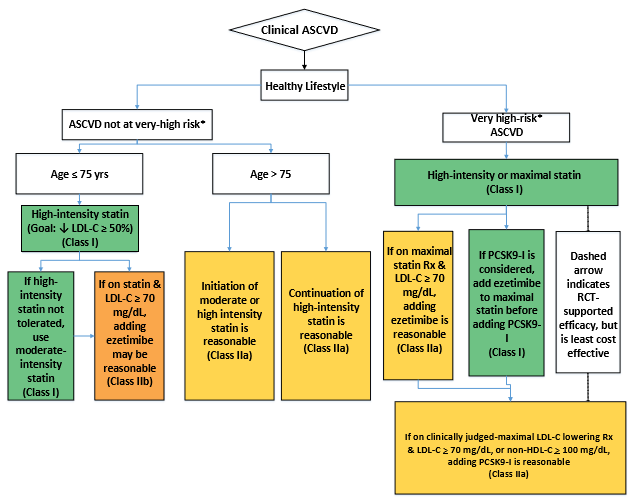
Ascvd Risk Estimator

10 Year Cvd Risk Calculator Risk Assessment Tool For Estimating Your 10 Year Risk Of Having A Heart Attack Ver Assessment Tools Assessment Cardiovascular Risk
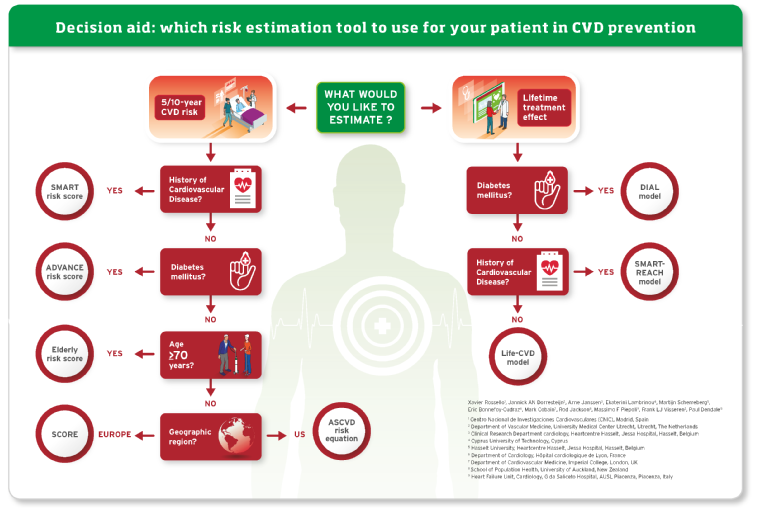
Esc Prevention Of Cvd Programme Risk Assessment

Score Chart 10 Year Risk Of Fatal Cardiovascular Disease In Download Scientific Diagram

3 Risk Assessment And Stratification
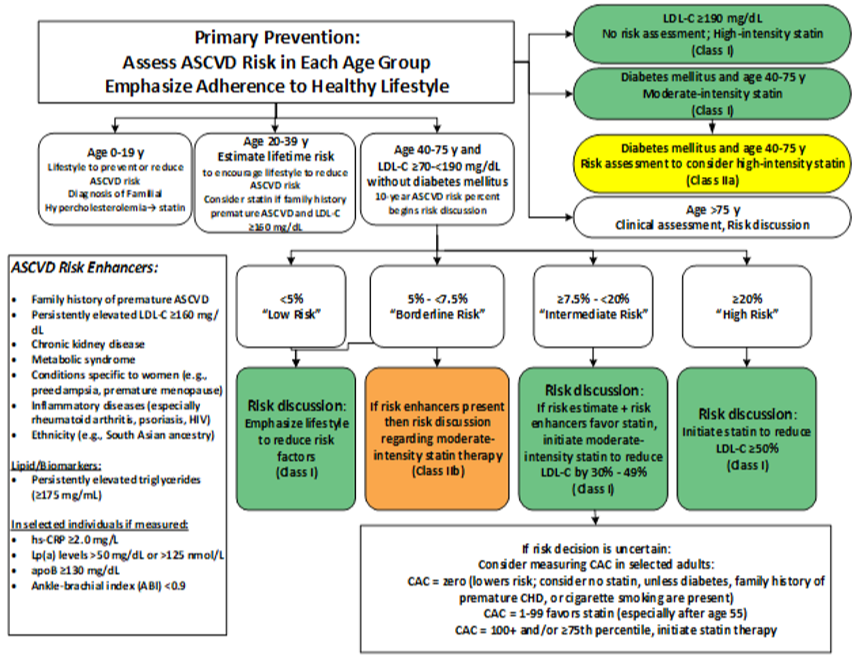
Ascvd Risk Estimator
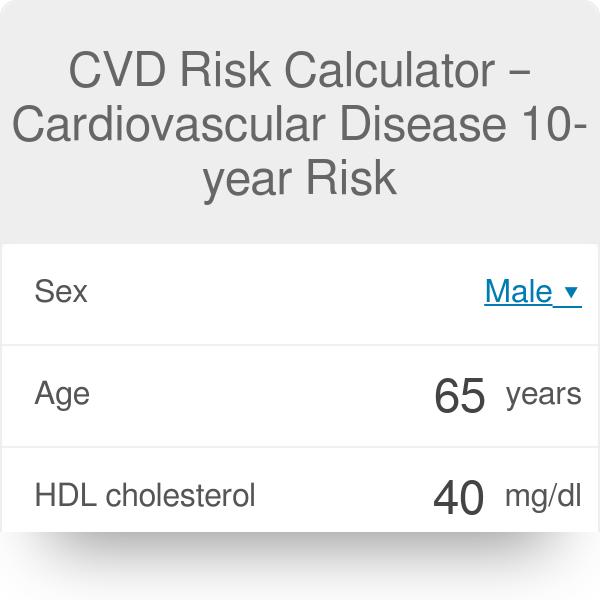
Cvd 10 Year Risk Calculator Framingham Study